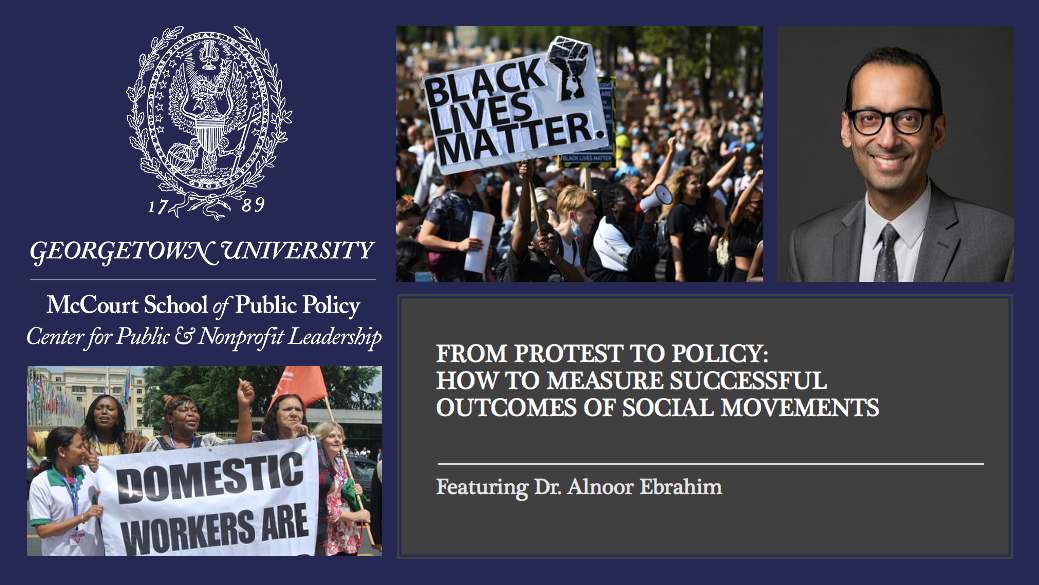Annual “Leadership for Public Purpose” event hosted by Georgetown’s Center for Public and Nonprofit Leadership

Posted in News Story
On October 22, 2020, the McCourt School’s Center for Public and Nonprofit Leadership (CPNL) hosted its annual “Leadership for Public Purpose” student dinner. The Center’s Director, Dr. Kathy Kretman, opened the conversation: “Since we are part of a public policy school, what better place to discuss how social movements can measure their success in propelling tangible policy changes? Very few movement leaders set out with a plan to measure their impact concretely. That’s usually the last thing they are thinking about in the moment. More likely, they are laser focused on mobilizing, coalescing, and raising the necessary funds to keep the movement alive—short term wins. But what are their long-term aspirational goals? What are their own indicators of success?”
Dr. Kretman introduced the guest speaker, Waldemar A. Nielsen Distinguished Visiting Fellow, Dr. Alnoor Ebrahim, author of “Measuring Social Change: Performance and Accountability in a Complex World.” Dr. Ebrahim’s book delves into the challenges of performance measurement, exploring how organizations can track their outcomes in the advancement of their mission using diverse nonprofits and institutions as case studies.
During the event, Dr. Ebrahim explained how the WIEGO (Women in Informal Employment: Globalizing and Organizing) policy network evolved from a movement that was created on the streets to a network of advocates that influenced policy change. He sought to compare lessons learned by WIEGO to other movements, such as Black Lives Matter (BLM). Dr. Ebrahim, looking at both a WIEGO poster and a Black Lives Matter one, remarked: “both statements on the posters, ‘domestic workers are workers’, and ‘Black Lives Matter’, at face value seem obvious and apparent, yet there is a need to stake that claim, to make it visible, to make it seep into people’s consciousness.”
During the discussion, Dr. Ebrahim explored WIEGO’s model of change and how best to use the limited capacity of the organization to conduct clear actions that can result in direct policy influence. While WIEGO’s model for change focused on legislative changes, BLM’s success was grounded in a cultural shift of public perception. The students participating in the dinner posed questions about indicators of success and long-term aspirational goals such as: “Should the goal of social movements be to effect policy change? What are examples of organizations that have done this successfully? Can movements sustain their longevity without a specific policy outcome or goal in mind?”
The conversation ultimately centered on the tensions that movements often face when deciding how to measure their success: Is policy change more valuable than cultural change? Which, if not both, will get you closer to achieving your mission? How can you measure whether or not culture has truly changed?
